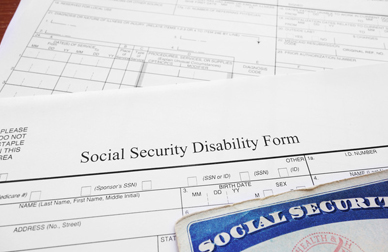Both SSD and SSI are administered by the SSA (Social Security Administration) and the medical eligibility for both is determined in the same manner, but these programs have key differences. Social Security Disability (SSD) is a disability insurance program based on your employment record and the amount you have paid as taxes. Supplemental Security Income (SSI) is a disability program based on your specific needs and pays monthly benefits to adults and children who are disabled or blind, and to seniors over age 65. This program provides disability benefits for disabled, low-income people who do not qualify for Social Security.
In both cases you need to file an application for disability. Here are the major differences between the two programs.
- SSD is funded through payroll taxes and the beneficiaries are “insured” because they have worked for a specific number of years and paid social security taxes. SSD insurance requires you to be younger than 65 and you must have earned a certain number of work credits. SSI doesn’t take into account your work history but is given on the basis of financial needs. It is paid only to those who have a very limited income and below $2000 in assets for an individual or $3000 for a couple.
- When you have been on SSD for 2 years, you become eligible for Medicare. SSI being a strictly need-based program is funded by general fund taxes. People on SSI normally receive Medicaid in the state they reside in.
- To receive SSD insurance benefits there is a five-month waiting period. This means that you will not receive benefits for the first 5 months after you become disabled. The amount you receive per month after the waiting period is based on your earnings record similar to the social security retirement benefit. SSI benefits begin on the first of the month when you first submit your application. SSI beneficiaries are also eligible for food stamps and the amount you receive will depend on where you live and the regular monthly income you have.
- Under SSD, your family members who are dependent on you may be able to receive a payment. If you have contributed enough during your employment period, children below age 18, adult disabled children and even some spouses may qualify for the payment. Under SSI, though dependents do not get paid. You receive a payment only if you are a disabled person.
- SSD payments are directly proportionate to your employment record. People who have worked more and paid in via taxes will receive a higher amount. In the case of SSI, the payments start with a basic federal benefit rate that remains the same for all. This benefit rate will be reduced in accordance with your countable income.
- SSD payments are paid each month and the day you receive the payment depends on your birth date. All SSI payments are made on the first of each month.
People receiving disability benefits will have to undergo medical review periodically. The periodicity of medical review depends on how severe the particular medical condition is and the possibility it will improve. Usually, you receive a letter from the SSA informing you they are conducting a review. A team comprising a doctor and disability examiner will review your file and request your medical reports for a medical record review. Your benefits will continue if the team decides that you are still disabled. In case they decide you are no longer disabled, you can file an appeal. If an appeal is not filed, you will stop receiving the benefits 3 months after the SSA decision.




